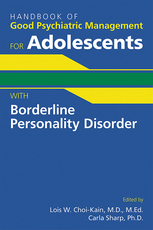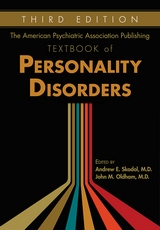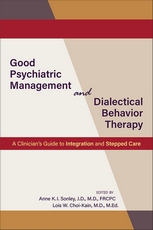Self-Injurious Behaviors
Assessment and Treatment
View Pricing
Description
Throughout history, people have invented many different ways to inflict direct and deliberate physical injury on themselves—without an intent to die. Even today, the concept and practice of self-injury is sanctioned by some cultures, although condemned by most.
This insightful work fills a gap in the literature on pathologic self-injury. The phenomenon of people physically hurting themselves is heterogeneous in nature, disturbing in its impact on the self and others, frightening in its blatant maladaptiveness, and often indicative of serious developmental disturbances, breaks with reality, or deficits in the regulation of affects, aggressive impulses, or self states. Further complicating our understanding is the large and diverse scope of psychiatric conditions, such as pervasive developmental disorders, Tourette's syndrome, and psychosis, in which these behaviors occur.
This volume presents a comprehensive nosology of self-injurious behaviors, classifying them as stereotypic, major, compulsive, and impulsive (with greater emphasis on the last two categories because they are the most commonly seen).
- The chapter on stereotypic self-injurious behaviors (highly repetitive, monotonous behaviors usually devoid of meaning, such as head-banging) focuses on the neurochemical systems underlying the various forms of stereotypic movement disorders with self-injurious behaviors, typically seen in patients with mental retardation and autism, and discusses their psychopharmacological management.
- The chapter on psychotic, or major, self-injurious behaviors (severe, life-threatening behaviors, such as castration) presents a multidimensional approach to evaluating and treating patients with psychosis and self-injurious behaviors, including the neuroanatomy and neurobiology of sensory information processing as background for its discussion of neurobiological studies and psychopharmacological treatments.
- Chapters on the neurobiology of and psychopharmacology and psychotherapies for compulsive self-injurious behaviors (repetitive, ritualistic behaviors, such as trichotillomania [hair-pulling]) offer much-needed biological research and the first empirical treatment studies on compulsive self-injurious behaviors, and argue that a distinction can indeed be made between compulsive and impulsive self-injurious behaviors.
- Chapters on the neurobiology, psychopharmacology, and dialectic behavior and psychodynamic theory and treatment of impulsive self-injurious behaviors (habitual, chronic behaviors, such as skin picking) supplement the few neurobiological studies measuring impulsivity, aggression, dissociation, and suicide and detail the efficacy of various medications and psychotherapies.
An eminently practical guide with exhaustive references to the latest data and research findings, this concise volume contains clinical material and therapeutic interventions that can be used right away by clinicians to better understand and treat patients with these complex and disturbing behaviors.
Contents
- Contributors
- Introduction to the Clinical Practice Series
- Introduction
- Chapter 1. Self-Injurious Behaviors: Phenomenology and Assessment
- Chapter 2. Stereotypic Self-Injurious Behaviors: Neurobiology and Psychopharmacology
- Chapter 3. Psychotic Self-Injurious Behaviors: Phenomenology, Neurobiology, and Treatment
- Chapter 4. Compulsive Self-Injurious Behaviors: Neurobiology and Psychopharmacology
- Chapter 5. Psychotherapies for Compulsive Self-Injurious Behaviors
- Chapter 6. Impulsive Self-Injurious Behaviors: Neurobiology and Psychopharmacology
- Chapter 7. Dialectical Behavior Therapy for Impulsive Self-Injurious Behaviors
- Chapter 8. Psychodynamic Theory and Treatment of Impulsive Self-Injurious Behaviors
- Index
About the Authors
Daphne Simeon, M.D., is Assistant Professor and Director of Medical Student Education in the Department of Psychiatry at Mount Sinai School of Medicine in New York, New York.
Eric Hollander, M.D., is a Professor; Director of Clinical Psychopharmacology; Director of the Compulsive, Impulsive, and Anxiety Disorders Program; and Clinical Director of the Seaver Autism Research Center in the Department of Psychiatry at Mount Sinai School of Medicine, in New York, New York.
Related Products
Carousel Control - items will scroll by tabbing through them, otherwise arrows can be used to scroll one item at a time








